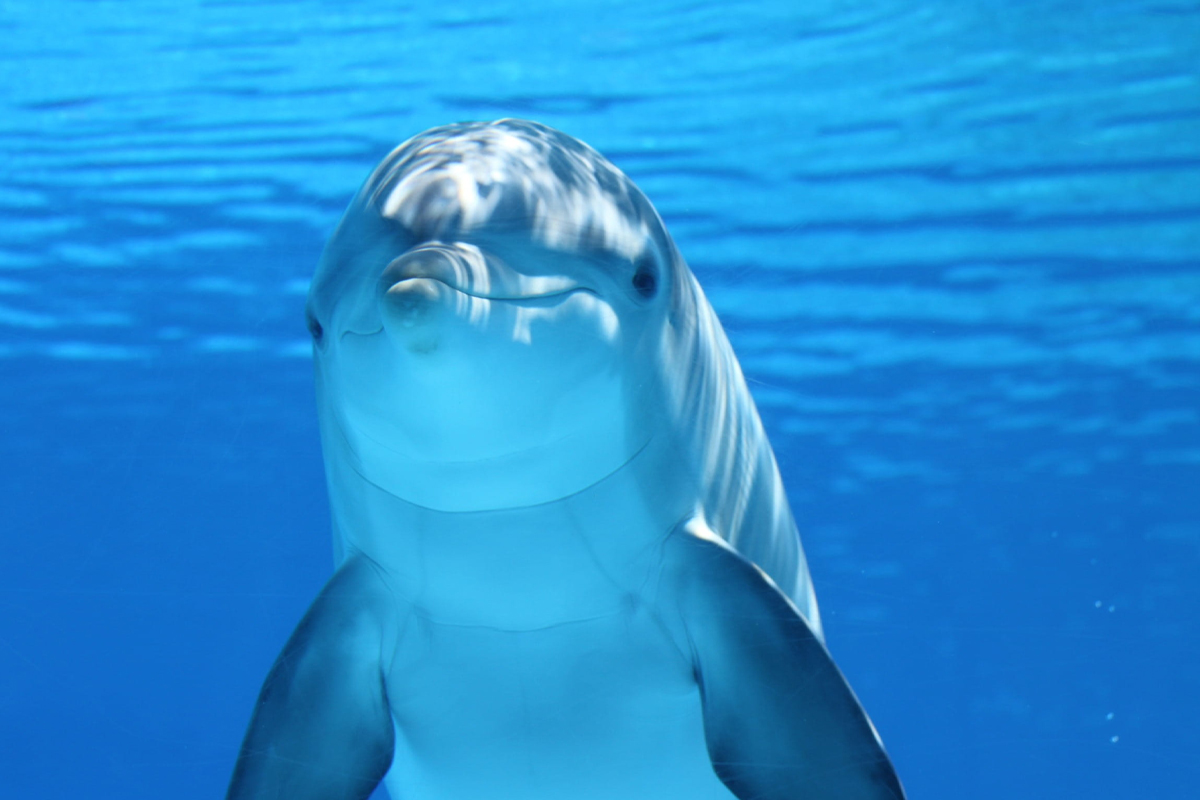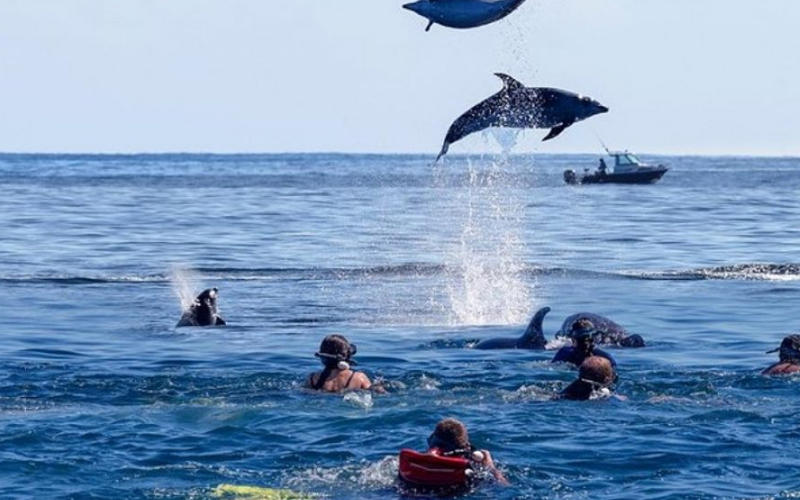Ethical Dolphin Tours Zanzibar Tanzania 2025
Zanzibar, with its crystal-clear waters and rich marine biodiversity, is one of the best places in the world to swim with dolphins. However, not all dolphin tours are created equal. In 2025, ethical tourism is more important than ever, ensuring that marine wildlife is protected while allowing travelers to enjoy unforgettable experiences.
Why Zanzibar is a Dolphin Hotspot
Zanzibar’s warm Indian Ocean waters provide a thriving habitat for multiple dolphin species. The most commonly spotted are:
- Bottlenose dolphins – Playful and social creatures that frequent the waters around Mnemba Atoll.
- Indo-Pacific humpback dolphins – Often seen near Kizimkazi, these dolphins are more elusive but equally fascinating.
Ethical vs. Unethical Dolphin Tours
Not all dolphin encounters in Zanzibar are ethical. Many unregulated tours engage in harmful practices such as:
- Chasing dolphins with boats, causing stress and injury.
- Encouraging tourists to touch or feed dolphins, disrupting their natural behaviors.
- Overcrowding in popular dolphin habitats.
Ethical dolphin tours focus on:
- Observing from a respectful distance.
- Educating tourists about dolphin conservation.
- Limiting the number of boats and tourists per tour.
Best Ethical Dolphin Tours in Zanzibar
When choosing a dolphin tour, look for operators that:
- Follow strict wildlife interaction guidelines.
- Limit the number of daily visitors.
- Work closely with marine conservation organizations.
Some recommended ethical operators include:
- Eco & Blue Adventures Zanzibar
- Safari Blue Zanzibar
- Sea Sense Zanzibar
What to Expect on an Ethical Dolphin Tour
A responsible dolphin tour in Zanzibar typically includes:
- A morning departure to minimize disturbances.
- Snorkeling and observing dolphins from a safe distance.
- A briefing on marine conservation and ethical tourism practices.
When is the Best Time to Visit?
For the best ethical dolphin encounters, visit during:
- June to October (cool, dry season)
- December to March (warm season with calm seas)
How to Prepare for Your Dolphin Tour
Packing Essentials:
- Reef-safe sunscreen
- Snorkeling gear (if not provided by the tour)
- A reusable water bottle
Alternative Ethical Marine Experiences in Zanzibar
If you prefer other sustainable marine adventures, try:
- Snorkeling at Mnemba Atoll
- Visiting the Mnarani Marine Turtle Conservation Pond
- Exploring Chumbe Island Coral Park
The Role of Conservation in Dolphin Tourism
Tourism plays a key role in funding marine conservation projects in Zanzibar. Many ethical tour operators donate a portion of their earnings to protect marine life and support local communities.
Local Community Involvement in Dolphin Tours
Many responsible tour operators work with local communities to create eco-friendly tourism opportunities. By choosing ethical tours, visitors support sustainable livelihoods for local fishermen and conservationists.
The Impact of Over-Tourism on Dolphins
Mass tourism poses threats such as:
- Noise pollution disrupting dolphin communication.
- Boat traffic causing injuries to dolphins.
- Habitat degradation due to irresponsible tourism practices.
Understanding Dolphin Behavior
Recognizing dolphin behavior helps ensure responsible interactions. Key behaviors include:
- Leaping and playing: Indicates curiosity and comfort.
- Tail slapping: A sign of distress or warning.
- Rapid swimming away: Dolphins trying to escape disturbance.
Photography Tips for Ethical Dolphin Watching
- Use a zoom lens instead of getting too close.
- Avoid flash photography.
- Capture dolphins in their natural habitat without interference.
Swimming with dolphins in Zanzibar can be an unforgettable experience if done responsibly. Choosing ethical tours ensures that dolphins thrive while tourists enjoy an authentic and respectful interaction. As ethical tourism grows, future generations will continue to witness these magnificent creatures in their natural habitat.
FAQs About Swimming with Dolphins in Zanzibar
- Are dolphin tours in Zanzibar safe for the dolphins?
Yes, if you choose an ethical operator that follows responsible guidelines. - Can I touch the dolphins?
No, touching dolphins disrupts their natural behavior and can be harmful. - What should I bring on a dolphin tour?
Snorkeling gear, reef-safe sunscreen, and a reusable water bottle. - How do I know if a tour is ethical?
Look for operators who limit visitors, avoid chasing dolphins, and educate tourists. - Is swimming with dolphins guaranteed?
No, ethical tours prioritize dolphin well-being over forced encounters.
Know more about Arusha National Park and Kilimanjaro Trekking in the Following Pages:













